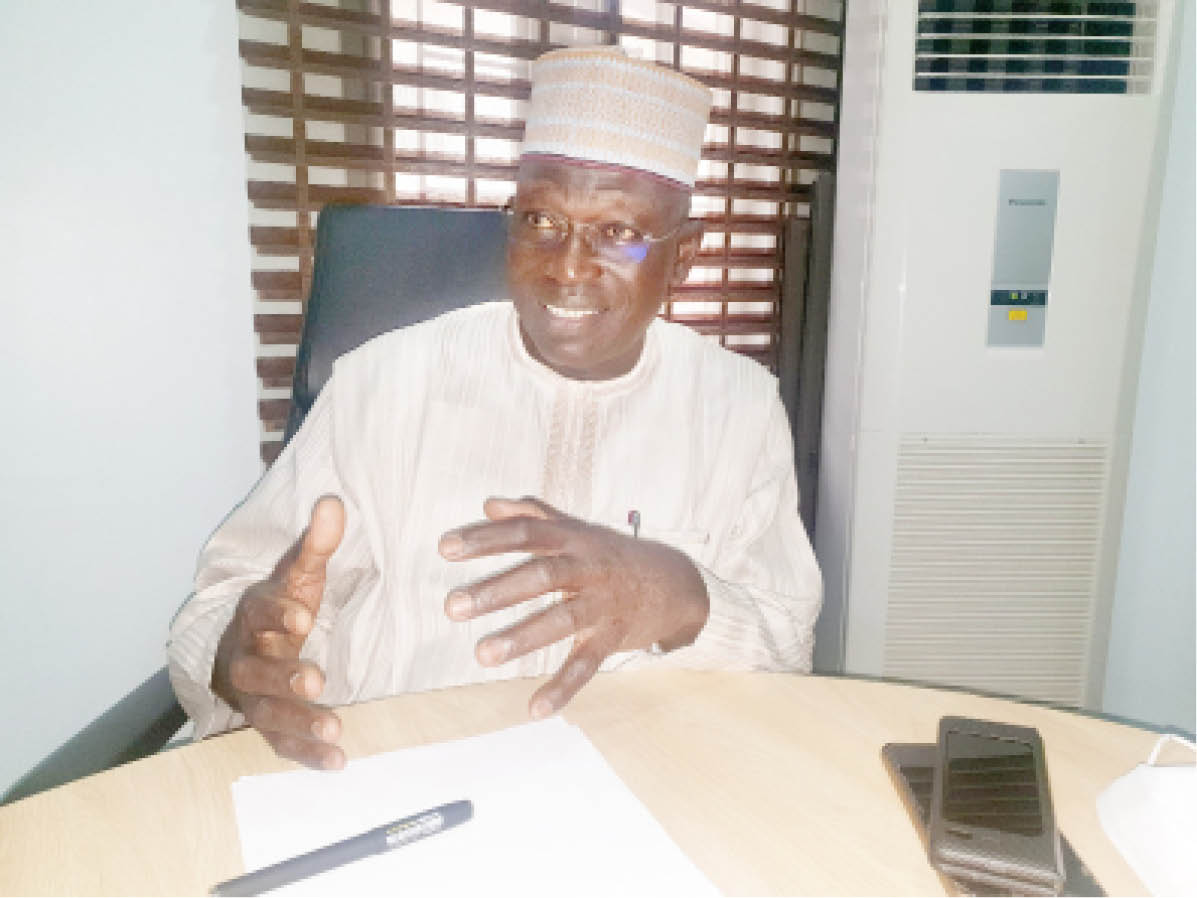Suleiman Abba is a retired Inspector General of Police (IGP) and Chairman of the Board of Trustees of the Nigeria Police Trust Fund (NPTF).
In this interview with select journalists, the 17th IGP who was appointed in 2015 called for the arrest and prosecution of those attacking police operatives and formations in the South, frowned at ransom payment to kidnappers and questioned the legality of negotiation with criminals, the need to merge government agencies doing police duty for better service delivery and other sundry issues. Excerpts:
- 2023: South-West women asks Yahaya Bello to declare for presidency
How ministry used 1971 Decree to dissolve sports federations
Daily Trust: There is an upsurge in the level of insecurity in the country to the level that the police seem now overwhelmed, and one of the responsibilities of the board you chair cuts across welfare, equipment, capacity building and others. It has been one year and we have not heard anything, what have you been doing?
Suleiman Abba: Let me first accept the fact that it has been a year since the Board of Trustees of the Police Trust Fund (PTF) was inaugurated in line with the provisions of the law, but it is not that it has been quiet since its inauguration. I hope you understand the provisions of corporate governance where responsibilities are shared. You have the board and you have the management with clearly defined responsibilities. The board has done well, particularly by giving a level playing ground to enable the police have the support of its budget to have modern equipment, training of its personnel and for it to be able to execute projects that will improve the welfare of their personnel.
In fact, I will say it has almost succeeded in its mission as provided by the law. The board is responsible for putting the structure necessary for the takeoff of the fund, and it has done that. We have the management that has been provided with the necessary staff. We brought in KPMG and it was able to give us the advisory techniques that enabled us to form a modern structure of governance; a structure wherein the board has committees that can support the management in its own responsibilities. We have gone far enough to the extent that before the end of last year we were able to pass the budget and also secure its passage by the National Assembly. We have done that as well to the 2021 budget.
So, if we have done these to the 2020, 2021 budgets, including getting them passed by the National Assembly, I think the remaining is procurement, and procurement is mainly the responsibility of the management. If there are problems, we all have a stake, let us know, we can see where we can come in.
DT: In specific terms, how are you addressing the problems facing the police?
Abba: Maybe you need to get to know how far procurement has gone. Supporting the police cannot be done without disbursement of funds. Let’s say for training and retraining, this cannot be done without disbursement of funds and other activities that are needed for the welfare of personnel. These are areas that are beyond my capacity except if you want me to find out and let you know.
DT: The PTF is supposed to get money from different sources, including companies and the Federation Account. It is one thing to have a budget and it is another to have the money to implement the budget; how far have you gone in this direction?
Abba: I want to feel that you are not unaware of the problems of some of the governors who are of the view that they shouldn’t be deducting from the Federation Account for the PTF; but I must tell you that since there is a law for that to take place, it is taking place, and like I told you, we have done a budget and we will appropriate it.
DT: Coincidentally, for the governors who are not cooperating, some of them are bearing the brunt of bandits and other criminal attacks in their states…
Abba: I am glad that you are the one saying it because I have said it too. Some of them were protesting that, “Who is against the police?”, but who is against the trust fund too? Who doesn’t want security?
DT: Is the management not supposed to be answerable to the board?
Abba: If you believe there are problems, then the onus lies on you to find out, and you should let us know if there is any. But I must tell you, if there are problems in procurement, from precedence, you should look for where the problem is coming from. It cannot certainly come from the board. We have passed the budget and have given the management the wherewithal to execute their responsibilities. If they are having problems or if there are delays, you are the one to find out and then let us know.
DT: As a former IGP, what is your assessment of the police being presently targeted for attacks by hoodlums, especially in the South?
Abba: It is disturbing. It is unimaginable to me the distrust between the police and a certain part of the society, particularly a part that doesn’t have regard for law or respect for government. The part that doesn’t care about the security of their kinsmen and other members of the society. The police in every part of the world carry the burden of protecting lives and property; sometimes paying the supreme price in doing so. I don’t see reason whatsoever that will be enough to make any part of the society no matter how disgruntled they are to be attacking police structures police personnel.
DT: What’s the solution?
Abba: The solution is that anybody involved in any crime at all should be made to pay for his actions. I think that is where we miss it. For almost a decade now, we have been having problems with organised crime. Some of them, we have been living with for a long time. I am talking about armed robbery and perhaps kidnapping. Some of them are very new and that is when we talk about organised banditry and other heinous crimes, including insurgent activities of Boko Haram.
We missed it because we have not taken the issue of prosecution seriously. People with criminal records, I mean people who have gone into crime, get arrested, get investigated, either are being prosecuted very slowly or are not being prosecuted at all when in the actual fact of it, we should be seeing convictions. We should begin to call them criminals after conviction so that it will serve as deterrent to others, but that has not been the case.
DT: But we are descending into negotiation with bandits, what is your take on that?
Abba: I don’t see how you should negotiate with criminals, particularly ones that are not ready to give up the trade. In any case, which law backs the effort of most of the people talking about negotiating with criminals? The prerogative or capacity to forgive an offense is mostly after conviction.
Justice is not just for the state, so simply because you are a governor, you don’t just wake up to say I am forgiving this, I am forgiving that on behalf of the state. Yes, you can do it but can you do it on behalf of the victims? Justice is for three: the state, the victim and the suspect.
DT: So are you saying the stick and carrot approach will not work?
Abba: Absolutely! People who go into crime do not have ordinary minds like me and you. They have negative emotions. When you spill the blood of another person, there is a tendency that you will do it again. The best for them is for justice to take its course.
Ever before most people began to say it, negotiating with criminals is wrong. I served as Commissioner of Police (CP) in Rivers State. I worked with a governor who never believed in negotiating with kidnappers; he would never allow those or anyone thinking that way to negotiate with kidnappers and we were able to bring it under control through the use of the same force they used against members of the public.
DT: You are calling for justice and that justice must take its course, but Nigerians are calling for protection. In your own assessment, why does the police force seem weak?
Abba: The police force is weak because it has been neglected for a long time. Alhamdulillah (praise be to Allah) I got to the peak of my career and saw that funding is the problem. Where we are now, we have an intervention model to improve the budget of the police in an interventional manner, where some of the procedures are meant to be taken away…We are being allowed to sink into the same problem; the same purpose of creating this trust fund because the procedure of getting it through the Ministry of Police Affairs does not give the end result. It is the same problem the “interventionary” trust fund is facing.
DT: Why is it difficult to massively recruit people into the police force?
Abba: There is nothing difficult about it, particularly as we are aware that the government has given approval for the police to recruit 10,000 each year and there is always money to back that exercise. At least we have witnessed the performance twice, but unfortunately, in the third one, there was a disagreement between the police and the Police Service Commission (PSC). Incidentally, I am one of those retired IGPs delegated to intervene.
So, the effort continues, but if you want to solve the second most important problem of the police, aside from funding, which is manpower, the most immediate thing to do is to merge organisations or government departments performing similar functions with the police immediately so that you can improve the manpower of the police.
Let me be direct, if you merge the civil defence, the road safety and the NDLEA with the police, you will be raising over a hundred thousand improved manpower for the police. That happens in all parts of world. You can make NDLEA a department in the police called anti-narcotic; make road safety the Police Federal High Way Patrol. If you do that, you will see the change in the performance of the police immediately.
DT: Will that not amount to dilution in terms of psychological focus?
Abba: Are you talking about lesser problems or you are talking about performance? If you are talking about performance, from the creation of NDLEA till date, would you tell me that the abuse of drugs and involvement or escalation of dealership in drugs has not quadrupled? When a Divisional Police Officer (DPO) used to know that it was his responsibility to control the abuse of drugs in his area and to check the dealers, the rate of raids was more and much more effective than it is today because when the control of drugs was in the hands of the police, every policeman knew he had a responsibility in the control of the abuse and sale/dealership of drugs. Would you tell me that the withdrawal of police highway patrol to enable the road safety lay claim for the responsibility on the highways has reduced crime on the highways?

 Join Daily Trust WhatsApp Community For Quick Access To News and Happenings Around You.
Join Daily Trust WhatsApp Community For Quick Access To News and Happenings Around You.


